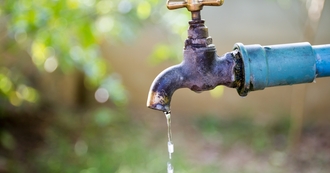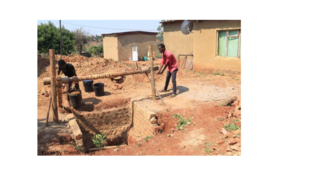- Featured
- Clean air
- Climate justice
- Consumer Rights
- Corporate Accountability
- Data access
- Early Childhood Development
- Economic fairness
- Education
- Electoral fairness
- Environmental justice
- Food justice
- Gender based violence
- Grants/social assistance
- Health
- Housing and infrastructure
- Industry interference
- Land Justice
- LGBTQIA+ rights
- Media/ information access
- Public transport
- Racism
- Reparations
- Safety
- Sanitation
- Service Delivery
- Sexual and Reproductive Rights
- Social justice
- Unemployment
- Womxn's rights/ gender equality
- Workers' rights
- More
-
City Of Cape Town, Reopen our Community Pools!The community pools are located in areas of Cape Town including Athlone, Bonteheuwel, Delft, Hanover Park, Khayelitsha, Langa, Manenberg, Woodstock etc where there are very limited recreational resources available to the community. The community pools are one of the most used facilities by the community during the summer months. The pools which charge just R3 for children and R9 for adults are affordable and safe and keep the children off the street in summer. Children do have time to do go to the pool after school in February and March, not just on the weekends, because they don't have exam pressure yet. Adults in the communities use the pools to exercise, including senior citizens. Many of the lifeguards working at the community pools come from the communities themselves and desperately need this seasonal work. Unlike in the green, leafy suburbs, these communities do not have access to private swimming pools. Closing the community pools and only providing budgets for regional pools like Sea Point is therefore a blatantly anti-poor way to spend Cape Town’s budget. * Stand with our vulnerable communities and our children – sign & share now. * Want to do more? Email or whatsapp your ward councillor asking them to reopen your local pool immediately. Find your ward councillor and their email address here: https://www.capetown.gov.za/Family%20and%20home/meet-the-city/city-council/find-your-councillor-ward-or-subcouncil/show-wards #ReOpenOurPoolsNow and bring back the summer fun! Umbrella Civic 57+ Aqua-aerobics for seniors group at Trafalgar Bonteheuwel Development Forum Cape Town Commons Collective Observatory Civic Association Reclaim the City Trafalgar Amateur Aquatic Club Walmer Estate Civic Association (WECA) Woodstock Residents’ Association (WRA)660 of 800 SignaturesCreated by Woodstock Residence Association (WRA)
-
Water and Sanitation Minister, when will all water leaks be fixed?Communities should not be burying their children, nor should they have to live harsh lives without a water supply for so long. Communities like Freedom Park reported at the same meeting on 17 January that they sometimes have to go far on foot at night to fetch water for their needs. They complain that water trucks don’t go into all community sections and favour sections with Jojo tanks. These reports are worrying and indicate that mismanagement is at the core of the issue that causes communities to get the bitter end of the stick. Even more troubling, however, is that the City of Johannesburg is very slow in addressing these serious problems. Mayors in Gauteng need to urgently fix the leaks often seen with piles of clean and treated water in holes and inflows. This means that the narrative that the water crisis is because communities are bridging water is untrue. Decision-makers in government should not be allowed to promote the narrative that communities that use water for basic needs such as drinking, cooking, cleaning and bathing are wasting water. We call on Mayors in Gauteng and Water Minister Majodina to: • Stop blaming communities and take accountability for your failures • We want the mayors and minister to give us a plan showing us when they will fix all the water leaks. • We want fortnightly updates detailing the process of fixing water leaks as well as the financial shortfall • Fix all leaking meters • Fix all burst pipes • Fix all leaking valves • Fixes all leaking fire hydrants - Ensure the municipalities collect adequate revenue from sectors like mining and large-scale commercial agriculture that use large quantities of water for profit. Stricter regulations should also be in place for suburbs and golf courses that use tons of water to irrigate lawns and maintain swimming pools. Low-income communities in informal settlements and townships bear the brunt of water cuts. They have had more water shedding than the suburbs and commercial companies, which needs to change. Communities in Freedom Park, Slovo Park, Jackson, townships in the Vaal, Phumla Mqashi, and areas like Meadowlands, Fleurhof, Thembalihle, and more have decided to say enough is enough about the water issues they have been experiencing for years. They call on us to stand in solidarity by signing this petition.600 of 800 SignaturesCreated by Civic Action for Democracy and Equality
-
Stop with the corporatization of Home AffairsPublic services should work for everyone; the planned proposals to launch a premium service allowing people to pay extra to fast-track their document applications [4] should be cancelled. On top of planning to digitize the department, introducing things such as “premium services” should be vehemently rejected having the ability to pay for a public service, such as fast-tracking an application, trumps the idea of what a public service is. No one person should have the right to use money to get “better” service delivery over those without money. The department has to focus on making its services efficient and accessible for everyone. In a country like ours, where disparities between those with access and those who don't still persist, it is counterproductive to implement measures such as public e-services while the digital divide still persists where only one-third of the country’s population has access to smartphone [5]. In addition to poor IT infrastructure riddled by breakdowns, inefficiencies, and the famous “system is offline,” how will this be mitigated on the digitised platform? Add your name to the petition to get the Department of Home Affairs to do away with the idea of offering premium services. We all deserve decent service delivery. References [1] Home Affairs planning fast-tracked premium service by Jan Vermeulen for MyBroadband. 04 November 2024. https://mybroadband.co.za/news/security/568090-home-affairs-planning-fast-tracked-premium-service.html [2] Government must protect legitimate SRD grant applicants, say activists by Marecia Damons for GroundUp. 28 October 2024. https://groundup.org.za/article/government-must-protect-genuine-srd-grant-applicants-say-activists/ [3] UIF looks to updated databases to strengthen payment controls by Simnikiwe Mzekandaba for ITweb. 14 September 2020. https://www.itweb.co.za/article/uif-looks-to-updated-databases-to-strengthen-payment-controls/6GxRKqYJlg6vb3Wj [4] Home Affairs planning fast-tracked premium service by Jan Vermeulen for MyBroadband. 04 November 2024. https://mybroadband.co.za/news/security/568090-home-affairs-planning-fast-tracked-premium-service.html [5] Number of smartphone users in South Africa from 2014 to 2023 (in millions) by Petroc Taylor. 18 January 2023. https://www.statista.com/statistics/488376/forecast-of-smartphone-users-in-south-africa/1 of 100 SignaturesCreated by Thabisile Miya

-
Demand Vhembe district municipality to provide water tanks for residentsResidents of Tshifudi Tshikombele village in Venda Limpopo have reported that over the years, they have been experiencing extreme water scarcity. Ground up, an online newspaper reported that the village has a few water taps; however, these taps only receive water once a month when the water from a local dam is supplied. However, the community shared its concerns over this water supply from the dam, with many claiming that the water from the dam is not safe for consumption. As a result, “ Most residents have been collecting water from a river where they also wash their clothes and send cattle to graze and drink” [1]. Facing uncertainty and not being able to afford water; a local Tshifudi Tshikombele resident has even resorted to digging his own water well in order to access underground water for him and his community. “Tired of sharing water with animals, Dzebu took a pick, shovel, and hammer, and selected a spot where he believed underground water might be found. He spent three months digging the deep hole. Each time using a long rope to climb in and out of the well, with some help from his sister and mother” [2]. Residents from Magangeni village in Elim, another village under the Vhembe district municipality, have also resorted to digging their own water wells. They state that because of water scarcity and being unable to afford water from local vendors that own private boreholes, they resorted to digging a well. This problem has been going on for the past 20 years in most of these communities. “Residents said a borehole drilled by the municipality stopped working after cables and the pump were stolen 20 years ago. Then, four years ago, municipal workers installed new pipes and cables, but the borehole still isn’t functional” [3]. The municipality claims that theft and vandalism of the boreholes are a major problem[4]. They plan to upgrade water systems and repair non-functional boreholes [5]. The Vhembe district municipality is proposing a long-term solution that will take years to implement. The municipality is not taking people's lives into consideration. The people in the district need clean and usable water now. We demand that the municipality provide water tanks daily to the community. This will help greatly because community members cannot afford to buy water from local vendors; having clean, usable water will prevent waterborne diseases such as cholera and typhoid. Having water tanks will also reduce the pressure on groundwater sources, which can become overdrawn in water-scarce regions, leading to long-term depletion and environmental degradation. References [1] Desperate Limpopo man digs well so his village doesn't have to share water with animals. By Thembi Siaga and Elmon Tshikhudo for GroundUp. 20 September 2024. https://groundup.org.za/article/desperate-limpopo-man-digs-well-so-his-village-doesnt-have-to-share-water-with-animals/ [2] https://groundup.org.za/article/desperate-limpopo-man-digs-well-so-his-village-doesnt-have-to-share-water-with-animals/ [3]https://groundup.org.za/article/women-in-magangeni-village-in-limpopo-dug-a-well-to-access-underground-water-amid-severe-shortages/ [4] Vhembe District Says Vandalism Is Contributing To Water Challenges. By Oratile Kekana for Capricorn FM. 12 September 2024. https://www.capricornfm.co.za/vhembe-district-says-vandalism-is-contributing-to-water-challenges/ [5]https://groundup.org.za/article/women-in-magangeni-village-in-limpopo-dug-a-well-to-access-underground-water-amid-severe-shortages/4 of 100 SignaturesCreated by Nomzamo Octavia NGCOBO
.png)
.png)


.png)